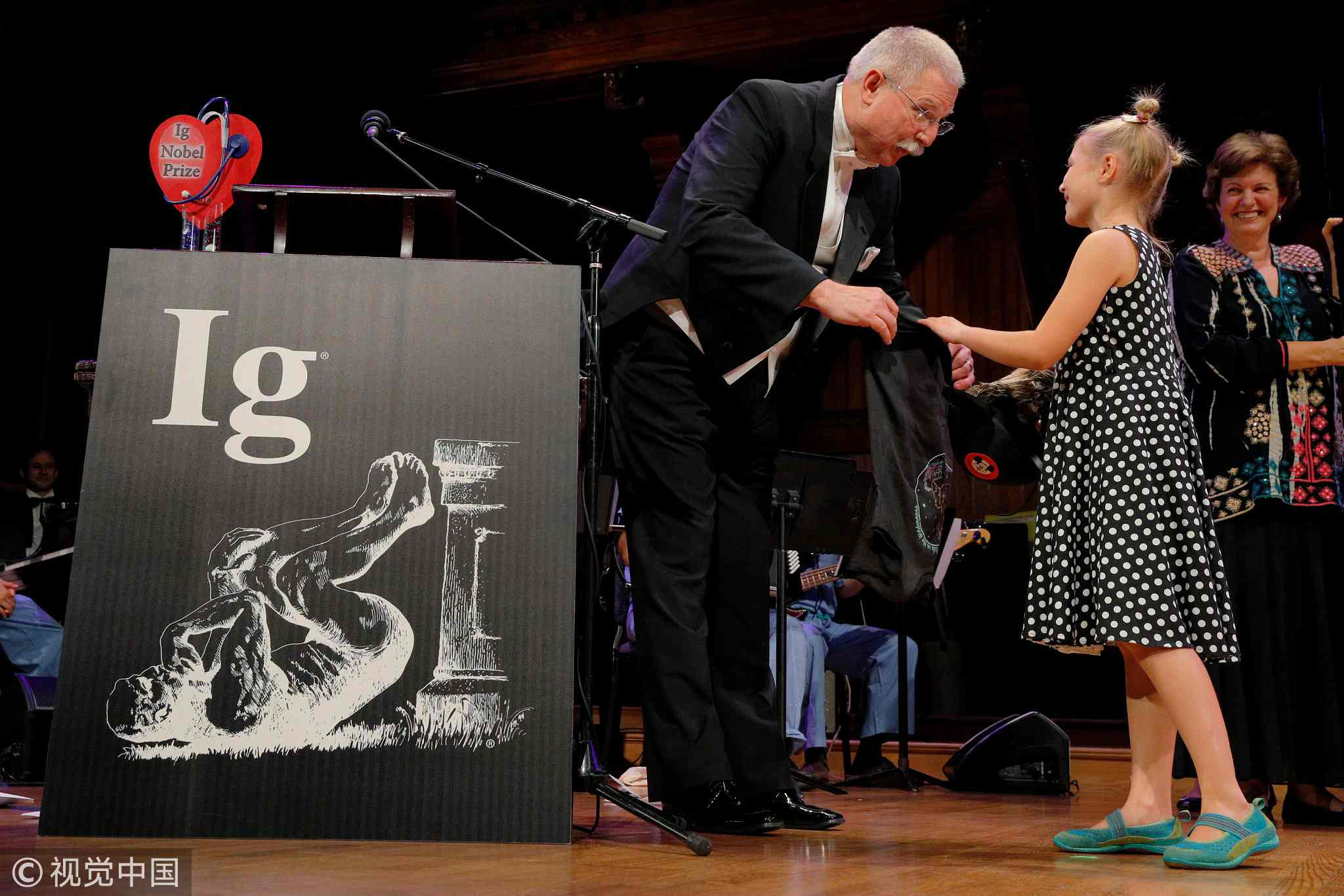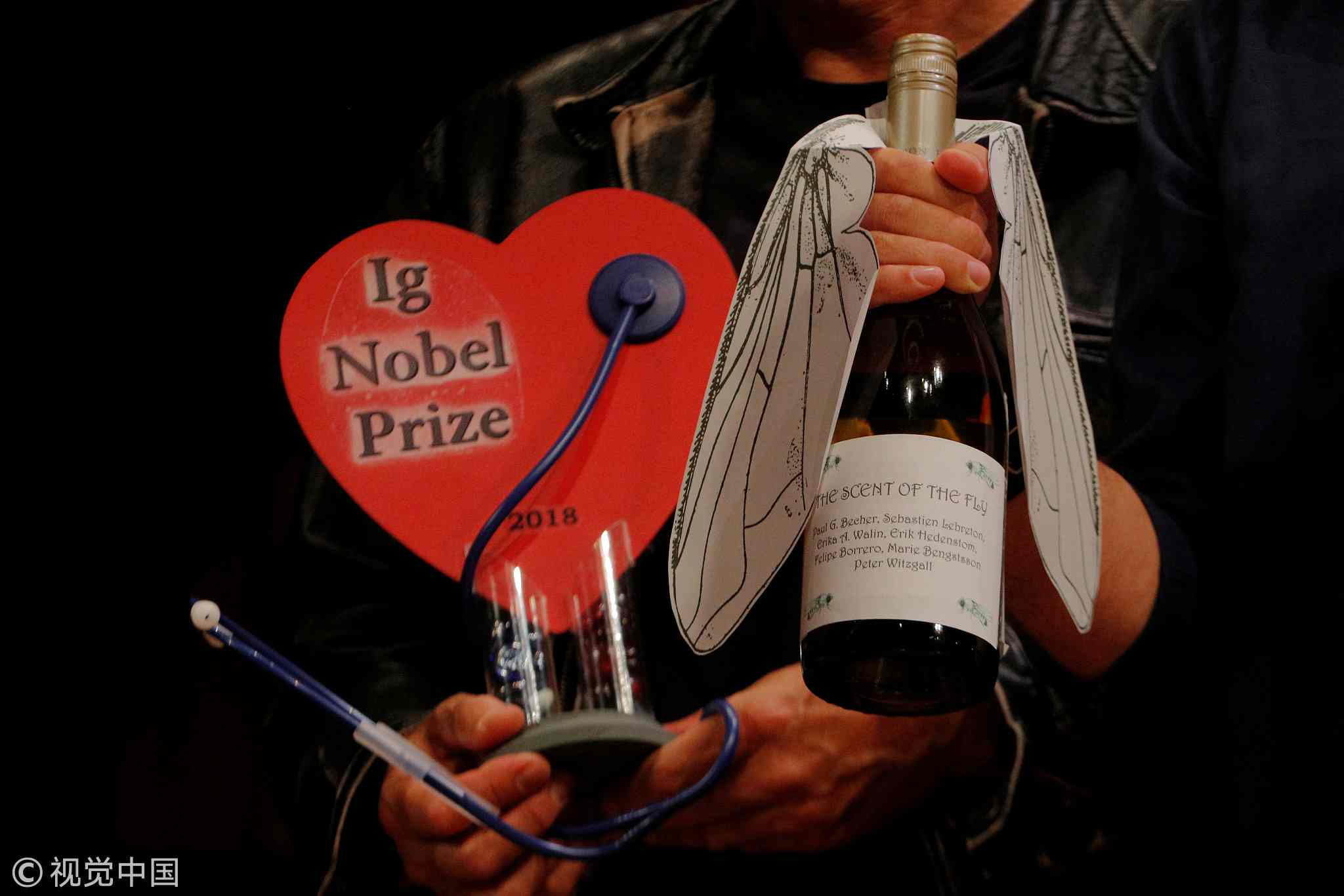
Tech & Sci
19:45, 14-Sep-2018
Tongue-in-cheek Nobels honor nutritional analysis of cannibalism, roller-coaster kidney stones treatment
Updated
18:57, 17-Sep-2018
CGTN

A nutritional analysis of cannibalism and treating kidney stones on roller-coasters were research projects honored by tongue-in-cheek awards at Harvard University Thursday, designed to make you laugh first, and think later.
The prize? A fake, ten-trillion-dollar bill from Zimbabwe and the opportunity to give a 60-second acceptance speech before being timed out by an eight-year-old girl saying, "Please stop. I'm bored."
The Ig Nobel Prizes, or so-called "anti-Nobels," are organized by the satirical scientific journal "Annals of Improbable Research" and honor the same 10 categories as the real Nobels, the most prestigious awards in the world.

David Wartinger is interrupted by "Miss Sweetie Poo" Dorothea Hartig (R) while accepting the Ig Nobel prize for Medicine for "using roller coaster rides to try to hasten the passage of kidney stones." /VCG Photo
David Wartinger is interrupted by "Miss Sweetie Poo" Dorothea Hartig (R) while accepting the Ig Nobel prize for Medicine for "using roller coaster rides to try to hasten the passage of kidney stones." /VCG Photo
This year, the Ig Nobel Prize for Medicine went to two American researchers for a study published in October 2016 on the effects of using roller coaster rides to try and hasten the passage of kidney stones, according to the organizers' press release.
The nutrition prize went to researchers in Britain, Tanzania and Zimbabwe for calculating that the calorie intake from a human cannibalism diet was significantly lower than from "most other traditional meat diets."
A paper on chimpanzees imitating humans about as often, and about as well as vice versa conducted by researchers from seven European countries and Indonesia won the prize for anthropology at the 28th annual ceremony.
The prize for biology went to those who demonstrated that wine experts can identify, by smell, the presence of a single fly in a glass of wine – a joint effort by academics in Colombia, Germany, France, Sweden and Switzerland.

Researchers accept the Ig Nobel prize for Biology for demonstrating that wine experts can reliably identify, by smell, the presence of a single fly in a glass of wine. /VCG Photo
Researchers accept the Ig Nobel prize for Biology for demonstrating that wine experts can reliably identify, by smell, the presence of a single fly in a glass of wine. /VCG Photo
The peace prize was won by those who measured the frequency, motivation and effects of shouting and cursing while driving an automobile.
(Cover: The 28th First Annual Ig Nobel Prize Ceremony at Harvard University in Cambridge, Massachusetts, US, September 13, 2018. /VCG Photo)
Source(s): AFP

SITEMAP
Copyright © 2018 CGTN. Beijing ICP prepared NO.16065310-3
Copyright © 2018 CGTN. Beijing ICP prepared NO.16065310-3